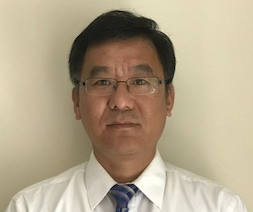
Shuhua Bai
Husson University, USA
Title: Exosome nanovesicles for the homing delivery of therapeutics into autologous cancer cells
Biography
Biography: Shuhua Bai
Abstract
Extracellular vesicles (EVs) are naturally occurring membrane particles that mediate intercellular communication by delivering molecular information between cells. In this study, we propose to package therapeutics agents in endogenous nanovesicles, known as exosomes, derived from cancer cells. It is expected that autologous cancer cell-derived exosomes can be taken by cancer cells themselves via homing selectivity and bring the entire payload to the autologous tumor cells. Exosomes were isolated from human adenocarcinoma A549 and brain endothelial bEND.3 cell cultures using centrifugation. They presented nanosized vesicles measured by a nanosizing system. Fluorescent rhodamine 123 and anticancer drugs including paclitaxel and doxorubicin were incorporated into exosome nanoparticles by diffusion. Designed siRNA to inhibit Intercellular Adhesion Molecule-1 (ICAM-1) was loaded into exosome with the assistance of transfection reagent. Fluorescence intensity in the cells treated with autologous cell-derived exosome delivered markers was significantly increased. Exosome-delivered anticancer drugs significantly decreased cell viability in autologous cells compared to other exosomes. Exosome-delivered siRNAs significantly enhanced the knockdown efficacy compared to siRNA alone, dependent on exosome original sources and loading methods. ICAM-1 siRNA formulated in autologous lung cell-derived exosomes with the assistance of transfection agent showed the best inhibitory effect on the ICAM-1 expression compared to other treatments. Cancer cell-derived exosomes could be used as effective carriers, bringing therapeutic agents into the cells and increasing efficacy to their parental cells. The use of cancer cell-derived exosomes will be further investigated for individualized and targeted lung cancer therapy

